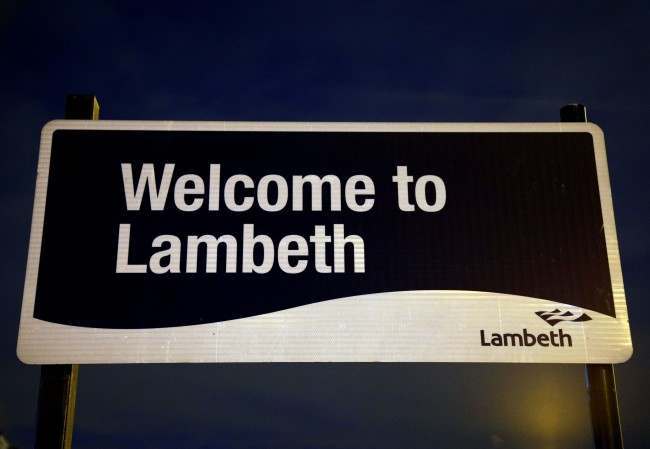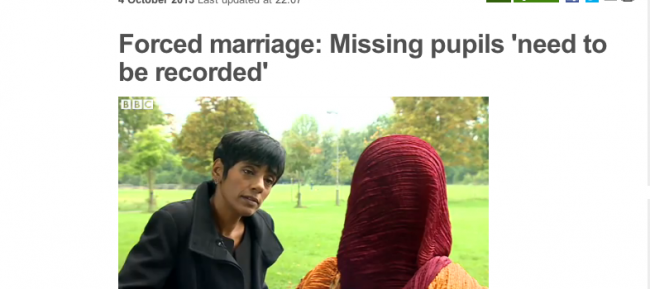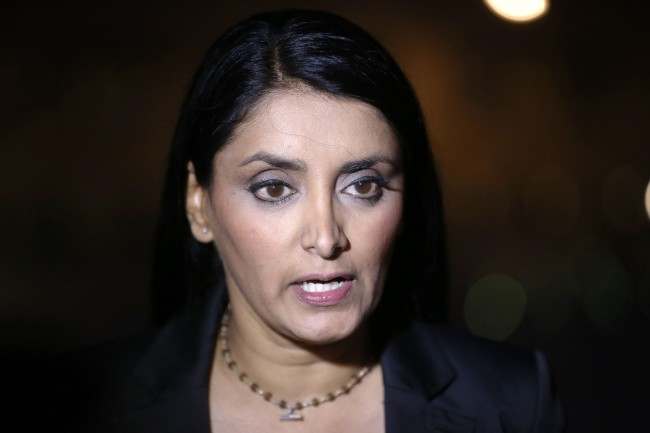Lambeth Slaves: Rescued By Journalism An Indian Karate Teacher And Courage

WHEN the story that three women had been rescued from a south London home, where they’d been held as slaves for at least 30 years, the news media went into overdrive.
Two arrest have been made: a 67-year-old man and a 67-year-old woman. Both have been bailed. They are forbidden from returning to their home.
It turns out they were arrested in the 1970s. But we do not know why.
The rescued women are a 69-year-old Malaysian woman, a 57-year-old Irish woman and a 30-year-old British woman. The youngest woman had been held in captivity at the address for her entire life. The Evening Standard adds:
It is believed that the two suspects are Asian and that the 30-year-old victim is the daughter of one of the other victims.
It emerged yesterday that the women, one of whom had been confined in the house her whole life, had endured “horrific conditions” and have been left “extremely traumatised” by their ordeal.
Detective Inspector Kevin Hyland states: “We have seen some cases when people have been held for 10 years, but we have never seen anything of this magnitude before….
“Whilst we do not believe that they have been subjected to sexual abuse, we know that there has been physical abuse, described as beatings – however there is nothing to suggest that the suspects were violent towards others outside of the address. The two people we arrested yesterday are on bail, they have also been arrested on suspicion of immigration offences and we are working closely with the Home Office Immigration Enforcement. I am not prepared to disclose the nationalities of the two people arrested but they have been in this country for many years, we also do not believe the victims were trafficked into the UK.”
Commander Steve Rodhouse adds: “It is a serious case — clearly different, unique and hugely troubling. We have three women who have endured many years of emotional abuse… [It is a] complicated and disturbing picture of emotional control over many years — brainwashing would be a simple term for it”.
Is it common to find slaves living in the UK?
The Global Slavery Index 2013 says there are 14 million salves in India, which is top of the list. Of 162 countries, the UK is 124th on the list, home to an estimated 4,600 slaved. But it;s based on estimates. By it’s very natures, counting salves is tricky.
How does the Index measure modern slavery?
The amount and type of slavery in the Global Slavery Index is measured using three variables:
A composite estimate of the number of people in modern slavery in each country (this makes up the majority of the prevalence estimate, accounting for 95% of the total)
A measure of the level of human trafficking to and from each country (accounts for 2.5%)
A measure of the level of child and early marriage in each country (accounts for 2.5%)
Is forced marriage a form of slavery? Surely it is.
This Index estimates that there are 29.8 million people in modern slavery globally.
When considered as a percentage of population, the prevalence of modern slavery is highest in Mauritania, Haiti, Pakistan, India, Nepal, Moldova, Benin, Cote d’Ivoire, the Gambia and Gabon.
However, when considered in absolute terms, the countries with the highest estimated numbers of enslaved are India, China, Pakistan, Nigeria, Ethiopia, Russia, Thailand, Democratic Republic of Congo, Myanmar and Bangladesh. Taken together, these ten countries account for more than 76% of the total estimate of 29.8 million enslaved.
The top 10 countries ranked for their low prevalence are: Ireland, Iceland, UK, New Zealand, Switzerland, Sweden, Norway, Luxembourg, and Denmark.
That Top 10 turns out to be a Top 9, so the figures should be taken with some degree of salt.
But how were the women the Daily Mirror called ‘SLAVES’ found?

The story began in October 2013, when one of the women called Freedom Charity. The woman had been watching TV. She’s seen a show about Freedom Charity rescuing women forced into marriage.
Sure enough, on October 4, the BBC broadcast an item, on forced marriage:
The Freedom Charity is calling on the Department for Education to keep accurate numbers of children who go missing over the summer holidays.
The government’s Forced Marriage Unit says it deals with almost 1500 cases each year but that that is only the tip of the iceberg.
Sara, who does not want to be identified, fled her family when she found out they were about to marry her to a man twice her age.
She told Reeta Chakrabarti the experience made her feel like “an item to sell”.

Freedom Charity founder Aneeta Prem (below) told Sky News: “We started in-depth to talks to them when they could, it had to be pre-arranged,” “They gave us set times when they were able to speak to us. It was planned that they would be able to walk out of the property. The police were on standby. They were able to leave the property, but it was done in such a way… it was a very, very excellent way it happened…

“They felt they were in massive danger…They were living lives of domestic servitude. They did have rooms that they could use but they were really restricted about what they could do and could never leave the front door. They are very distressed about what’s happened but they’re making steady process. I’ve spent a great deal of time with them and think they’re making as much progress as we can expect them to. It’s been very difficult for them.”
What is Freedom Charity?
We aim to empower young people to feel they have the tools and confidence to support each other and have practical ways in which they can help their best friend around the issues of family relationships which can lead to early and forced marriage and dishonour based violence.
And:
Aneeta originates from “Himachal Pradesh” (Land of the Gods) in Northern India.
She is a London magistrate, specialising in family and youth law as well as the recruitment, training and mentoring of new magistrates. Aneeta is an active member within her local community and has gained trust and respect for the voluntary work she has done in London, acting as a mentor and a public voice, for which she has received public recognition.
She received the Commissioner’s Commendation for the work she did in an oversight capacity leading the Tsunami Police Rescue effort for the Metropolitan Police Authority (MPA). Aneeta was the MPA lead member for forced marriages and dishonour based violence, working closely with the Foreign and Commonwealth Office and survivors.
Aneeta was the youngest female black belt karate instructor, establishing and running several karate clubs in London which is where she first became aware of the issue of forced marriage when she started teaching children karate in London and the pressures facing some of her young female students.
The Guardian says: “The case has echoes of abductions of three woman by Ariel Castro in Ohio in the US in 2002 and 2004, and of the Elisabeth Fritzl and Natascha Kampusch incarcerations in Austria.” Well, no, it doesn’t. We’ve not seen any evidence that they were sexually abused nor kidnapped.
This is something else. As the Independent reports:
A fortnight ago in the opulent Savoy Hotel in London, Theresa May gave a hint of the dramatic rescue just miles away of three women from their captors.
The Home Secretary told an awards ceremony: “We’re sitting here in these beautiful surroundings, having had a wonderful meal. But remember there are men, women and children in our country who are living lives of servitude and misery – probably some of them not too far away from where we are today.”
She spoke of her determination to tackle the “long engrained injustice” of modern-day slavery, singling it out as a priority for the Home Office.
Next month Mrs May will publish a draft Modern Slavery Bill that will bring together measures to combat human trafficking and the activities of gangmasters. The aim is to get the Bill on the statute book within a year.
Such are the facts…
Posted: 22nd, November 2013 | In: Reviews Comment | TrackBack | Permalink


